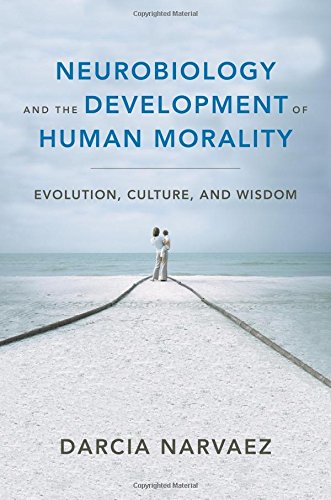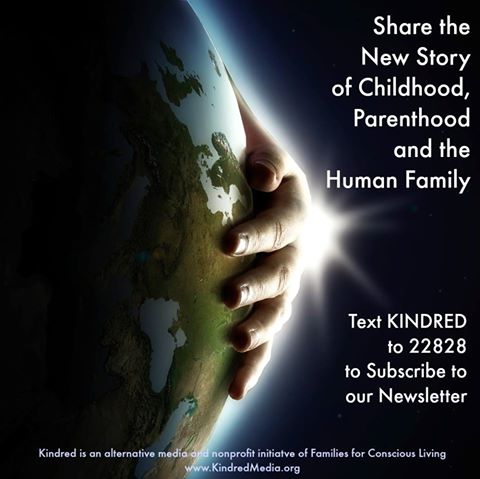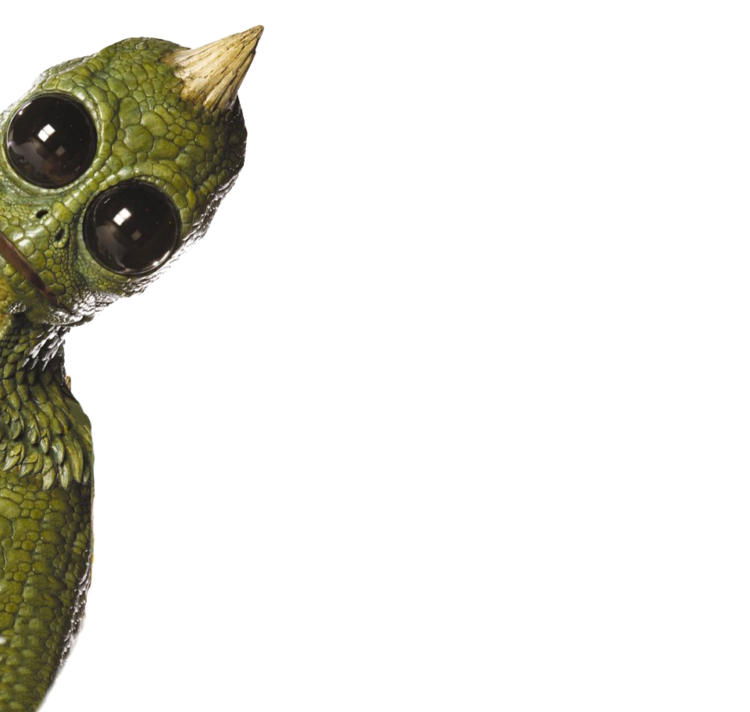Are We Raising Humans Or Reptiles, Or Humans That Become Reptiles Through Lack Of Nurturing?
![]() With the evolved nest we become human; without it we are fearful “reptiles”
With the evolved nest we become human; without it we are fearful “reptiles”
Do you know any vicious people? People who are routinely self-centered, cruel, domineering, or exclusionary? People whose “hearts” seem to be missing? Soul-less, mind-less, grasping for power or control? Withdrawing from the world with self medication from consumerism, physical pleasures, media, drugs or even intellectual pursuits? Driven by deep fear, why are there so many people like this in the USA?
The USA is one of the worst places in the world to raise a child. There, I said it. How can this be in the monetarily-richest nation on the planet? Of course, life is about more than money.
The USA undermines the provision of what young children need at virtually every step in their development.
But, you say, our kids are not starving. True, but they are probably malnourished if they are eating processed foods to any great degree.
But, you say, they are safe from war. Yes, but they are not safe from other environmental dangers,like the thousands of new chemicals put into the soil, air, water and the hundreds known to be carcinogenic but not banned from use (Davis, 2007).
But these challenges are only symptoms of the larger problem I am pointing to. I am talking about something bigger, broader and more fundamental, which encompasses food provision and environmental safety. The care and tenderness with which we raise children. The missing tenderness. The missing evolved nest.

The Evolved Nest. As ethological observations of many animal species have noted, all animals provide a nest that matches up with the maturational schedule of their young in order to optimize normal development (Gottlieb, 2002; West-Eberhard, 2003). Humans are no different. Humans evolved a particular nest to provide the intensive care an immature newborn needs (Konner 2005). Humans are born highly immature compared to other hominids (and should be in the womb at least another 18 months!) (Trevathan, 2011). As a result, most brain development occurs after birth. Thus, humans evolved to expect a particular set of experiences in early life (Greenough & Black, 1992). Child wellbeing requires an intense level of support on the part of the mother and community (Bronfenbrenner, 1970), a situation that was available throughout most of humanity’s existence (Hrdy, 2009).
How do we know what humanity’s evolved nest looks like? Substantive evidence comes from extant studies of foraging communities around the world, the type of society in which the human genus spent 99% of its history (Hrdy, 2009; Konner, 2010). Nomadic foragers raise their children in a similar way wherever they have been observed around the world (Hewlett & Lamb, 2005). Anthropologists summarize the shared caregiving for infants and young children across these groups:
“Young children in foraging cultures are nursed frequently; held, touched, or kept near others almost constantly; frequently cared for by individuals other than their mothers (fathers and grandmothers, in particular) though seldom by older siblings; experience prompt responses to their fusses and cries; and enjoy multiage play groups in early childhood.” (Hewlett & Lamb, 2005, p. 15)
To this list of characteristics, also observed in these communities, can be added soothing perinatal experiences and positive social support.
Really, you’re saying, you’ve got to be kidding (right?). Nope. Not kidding.
How much do these characteristics matter for development? A great deal. When animals don’t receive their evolved nest, they become abnormal specimens–just like Harry Harlow’s monkeys. Remember those monkeys deprived of maternal love conveyed through touch? They never recovered and became autistic and antisocial.
It may be best illustrated this way. Think about raising a wolf in a human family: you will end up with a wolf. The wolf is not plastic enough to learn human ways. But if you raise a human in a wolf family, you end up with a wolf-child (as has happened numerous times in known history). The individual raised by wolves ends up missing many characteristic human attributes—they prefer walking on all fours, like wolves, instead of on their feet, like humans. They don’t develop language or social skills. There are sensitive periods for the development of various characteristics. Humans are greatly affected by their experiences after birth.*
In fact, one of the most important evolutionary inheritances humans have may be the evolved nest. Why? Because human physiology and psychology are highly shaped by post-natal experience. Neurobiological systems important for all a human becomes are shaped at this time. This includes the development of sociality and moral values (and Darwin’s moral sense).
In fact, one of the most important evolutionary inheritances humans have may be the evolved nest. Why? Because human physiology and psychology are highly shaped by post-natal experience (Gomez-Robles et al., 2015). Neurobiological systems important for all a human becomes are shaped at this time. This includes the development of sociality and moral values (and Darwin’s moral sense).
Here are just a few of the indicators of how the USA undermines the provision of the evolved nest by mothers and fathers.

Pregnancy. It is important for mothers to avoid stress and distress during pregnancy as they negatively influence the personality and physiology of the child (Davis & Sandman, 2010; Davis et al., 2007; Gluckman & Hanson, 2005). Stressed moms create more irritable babies (making it harder to care for them). But there is little expectation of this in the USA these days as all women are expected to work up to the birth (and even return to work shortly after birth). Imagine, instead of resonating with baby, getting their bodies in tune, tuning up the baby’s systems, the mother is distracted during pregnancy and absent during the most important times for brain development.
Child Birth. Medicalized birth in the USA is a clear and present danger for normal mothers (Wagner, 2006) and at every step tends to traumatize the mother and baby (separation, painful procedures, sensory shock to the infant), undermining normal mother-child bonding and entrainment (Buckley, 2015).
Post-birth experience. The child’s proper development depends on bonding with mother and continued entrainment with her physiology as the child needs an external womb experience till about 18 months of age. An immature infant learns self-regulation from calming, affectionate care. The USA is the only advanced nation and one of the few in the whole world without paid maternal leave after birth, which with an expectation of women at work and no child care support at work, undermines the evolutionarily “designed” mother-child relationship. Babies are unlikely to receive the carrying and responsive care needed if shipped to daycare. They necessarily become distrustful of the world from the denial of their need for mother’s mothering. Moreover, the USA is the only advanced nation whose practice of infant circumcision is both widespread and condoned by medical professionals, despite its great harm.
Breastfeeding. Only about 15% of US hospitals are “baby-friendly” which refers to mostly breastfeeding-friendly practices (i.e., circumcision is not addressed), such as not separating mom and baby, not giving formula or sugar water. Across the country, infant formula is advertised and given as free samples, practices banned in other advanced nations. The rates of exclusive breastfeeding at 6 months are low in the USA. Breastfeeding should go on for years in order to develop the proper physiology of the child, such as the immune system which does not reach adult functioning until around age 5.
Affection and responsiveness. Babies expect to be held and carried virtually all the time — their normal physiological development requires it. Under normal, naturalistic birth conditions, mother does not want to put baby down. She and the baby become magnetized to one another from reward centers being activated in the first hour or so (Buckley, 2015). But, practices mentioned above, plus USA cultural pressures to not ‘spoil the baby’ or let baby ‘control you,’ eat away at mother’s instincts. A mother must have great resolve to shut out this mistaken and harsh advice. More here, here and here.
Multiple responsive caregivers. Babies need constant in arms support, which of course cannot be done by a mother alone. In fact, isolating mothers and babies is a recent, health-undermining practice. Mothers in our prehistory were always mothering with other mothers who shared care and even breastfeeding when necessary (Hrdy, 2009). Babies should be kept calm as their physiological systems set their parameters and thresholds for functioning. For example a frequently distressed baby will develop stress-reactivity, a low threshold for getting upset, which they take forward into the rest of life (Lupien, McEwen, Gunner & Heim, 2009). USA capitalism has prioritized money over family and relationships, breaking up extended family life, and undermining basic trust children have toward the world through the practices mentioned earlier. More here and here.

Play. All mammals (and other animals too) play (Burghardt, 2005). It is a sign of health and sense of safety when young mammals play. Children expect to play from birth. Banter (sometimes called “gossip”), a more verbal form of play, is what characterizes human relationships in our ancestral conditions. In small-band hunter-gatherer communities, most of life is spent in social leisure (minimal work is done for food-gathering) which includes song, dance, storytelling and teasing banter. Series on play here.
Positive social support. The child in an extended family typically finds one or more relatives that love him or her. In nuclear families, this may not occur. The USA has emphasized nuclear families but in welfare-dependent families, policies have supported single-parent households. When children are shipped to daycare, preschool and join school populations, they are typically isolated with those of the same age and coerced to “learn” (Gray, 2015). This is counter to the naturalistic pedagogy that was normal until recent centuries where the younger modeled the older and the older mentor the younger. The contemporary, though abnormal, same-age lifestyle encourages competition and peer risk taking, rather than the growth of social cooperation, which is fundamental for the success of any society.
Gender differences. Boys need a more extended nest since they are the more delicate sex in virtually any way measured (Schore, 2017).
Consequences of the abandoned nest. Just like a species-typical nest is necessary to foster a species-typical individual, whether monkey or elephant or whale, the evolved nest is fundamental to becoming human. Animals raised in a species-typical manner are confident and comfortable in the world. They learn their place in the biocommunity and live cooperatively with others. The human being raised atypically, common in the USA and spreading across the world is afraid. Their confidence was broken early and burgeons into protectionism–against self needs, against intimacy, against others, against the world. Such a person does not learn his place in the biocommunity because such learning was thwarted repeatedly in early life. The denial of the evolved nest teaches the child to deny himself, to distrust the world and to deny respect for others. (And itt takes a great deal of courage, insight and healing to repair such early toxic damage.) Meanwhile, the social and physical world explode with walls and armaments against others.
Other posts in this series:
Be worried about boys, especially baby boys
Why care about undercared-for males? Messed up morals!
Humanity’s Moral Sense–Inherited or Nurtured?
REFERENCES
Bronfenbrenner, U. (1979). The ecology of human development. Cambridge, MA: Harvard University Press.
Buckley, S.J. (2015). Hormonal physiology of childbearing: Evidence and implications for women, babies, and maternity care. Washington, D.C.: Childbirth Connection Programs, National Partnership for Women & Families.
Burghardt, G.M. (2005). The genesis of animal play: Testing the limits. Cambridge, MA: MIT Press.
Darwin, C. (1871/1981). The descent of man. Princeton, NJ: Princeton University Press.
Davis, D. (2007). The secret history of the war on cancer. New York: Basic Books.
Davis, E.P., & Sandman, C.A. (2010). The timing of prenatal exposure to maternal cortisol and psychological stress is associated with human infant cognitive development. Child Development, 81(1), 131-148.
Davis, E.P., Glynn, L.M., Dunkel-Schetter, C., Hobel, C., Chicz-DeMet, A., & Sandman, D.A. (2007). Prenatal exposure to maternal depression and cortisol influences infant temperament. Journal of the American Academy of Child and Adolescent Psychiatry, 46(6), 737-746.
Gluckman, P. D. & Hanson, M. A. (2005). Fetal Matrix: Evolution, development and disease. New York: Cambridge University Press.
Gomez- Robles, A., Hopkins, W. D., Schapiro, S. J., & Sherwood, C. C. (2015). Relaxed genetic control of cortical organization in human brains compared with chimpanzees. Proceedings of the National Academy of Scienes, doi: 10.1073/ pnas.1512646112
Gottlieb, G. (2002). On the epigenetic evolution of species-specific perception: The developmental manifold concept. Cognitive Development, 17, 1287–1300.
Gray, P. (2015). Free to learn: Why unleashing the instinct to play will make our children happier, more self-reliant, and better students for life. New York: Basic Books.
Greenough, W., & Black, J. (1992). Induction of brain structure by experience: Substrate for cognitive development. In M. R. Gunnar & C. A. Nelson (Eds.), Minnesota symposia on child psychology 24: Developmental behavioral neuroscience (pp.155-200). Hillsdale, NJ: Lawrence Erlbaum.
Hewlett, B.S., & Lamb, M.E. (2005). Hunter-gatherer childhoods: evolutionary, developmental and cultural perspectives. New Brunswick, NJ: Aldine.
Hrdy, S. (2009). Mothers and others: The evolutionary origins of mutual understanding. Cambridge, MA: Belknap Press.
Ingold, T. (2005). On the social relations of the hunter-gatherer band. In R.B. Lee, R.B. & R. Daly (Eds.), The Cambridge encyclopedia of hunters and gatherers (pp. 399-410). New York: Cambridge University Press.
Konner, M. (2005). Hunter-gatherer infancy and childhood: The !Kung and others. In B. Hewlett & M. Lamb (Eds.), Hunter-gatherer childhoods: Evolutionary, developmental and cultural perspectives (pp. 19-64). New Brunswich, NJ: Transaction.
Konner, M. (2010). The Evolution of childhood. Cambridge, MA : Belknap Press.
Lupien, S. J., McEwen, B. S., Gunnar, M. R., & Heim, C. (2009). Effects of stress throughout the lifespan on the brain, behaviour and cognition. Nature Reviews Neuroscience, 10(6), 434-445. doi:10.1038/nrn2639
Schore, A. N. (2017). All our sons: The developmental neurobiology and neuroendocrinology of boys at risk. Infant Mental Health Journal, e-pub ahead of print doi: 10.1002/imhj.21616
Trevathan, W.R. (2011). Human birth: An evolutionary perspective, 2nd ed.. New York, NY: Aldine de Gruyter.
Wagner, M. (2006). Born in the USA: How a broken maternity system must be fixed to put women and children first. Berkeley, CA: University of California Press.
West-Eberhard, M.J. (2003). Developmental plasticity and evolution. New York: Oxford University Press.
NOTE on BASIC ASSUMPTIONS:
WHEN I WRITE ABOUT HUMAN NATURE, I use the 99% of human genus history as a baseline. That is the context of small-band hunter-gatherers. These are “immediate-return” societies with few possessions who migrate and forage. They have no hierarchy or coercion and value generosity and sharing. They exhibit both high autonomy and high commitment to the group. They have high social wellbeing. See comparison between dominant Western culture and this evolved heritage in my article (you can download from my website):
Narvaez, D. (2013). The 99 Percent—Development and socialization within an evolutionary context: Growing up to become “A good and useful human being.” In D. Fry (Ed.), War, Peace and Human Nature: The convergence of Evolutionary and Cultural Views (pp. 643-672). New York: Oxford University Press.
WHEN I WRITE ABOUT PARENTING, I assume the importance of the evolved nest or evolved developmental niche (EDN) for raising human infants (which initially arose over 30 million years ago with the emergence of the social mammals and has been slightly altered among human groups based on anthropological research).
The EDN is the baseline I use to examine what fosters optimal human health, wellbeing and compassionate morality. The niche includes at least the following: infant-initiated breastfeeding for several years, nearly constant touch early, responsiveness to needs to avoid distressing a baby, playful companionship with multi-aged playmates, multiple adult caregivers, positive social support, and soothing perinatal experiences.
All EDN characteristics are linked to health in mammalian and human studies (for reviews, see Narvaez, Panksepp, Schore & Gleason, 2013; Narvaez, Valentino, Fuentes, McKenna & Gray, 2014; Narvaez, 2014) Thus, shifts away from the EDN baseline are risky and must be supported with longitudinal data looking at multiple aspects of psychosocial and neurobiological wellbeing in children and adults. My comments and posts stem from these basic assumptions.
My research laboratory has documented the importance of the EDN for child wellbeing and moral development with more papers in the works (see my Website to download papers):
Narvaez, D., Gleason, T., Wang, L., Brooks, J., Lefever, J., Cheng, A., & Centers for the Prevention of Child Neglect (2013). The Evolved Development Niche: Longitudinal Effects of Caregiving Practices on Early Childhood Psychosocial Development. Early Childhood Research Quarterly, 28 (4), 759–773. Doi: 10.1016/j.ecresq.2013.07.003
Narvaez, D., Wang, L., Gleason, T., Cheng, A., Lefever, J., & Deng, L. (2013). The Evolved Developmental Niche and sociomoral outcomes in Chinese three-year-olds. European Journal of Developmental Psychology, 10(2), 106-127.
We also have a recent paper look at adult effects:
Narvaez, D., Wang, L, & Cheng, A. (2016). Evolved Developmental Niche History: Relation to adult psychopathology and morality. Applied Developmental Science, 4, 294-309. http://dx.doi.org/10.1080/10888691.2015.1128835
See these for theoretical reviews:
Narvaez, D., Gettler, L., Braungart-Rieker, J., Miller-Graff, L., & Hastings, P. (2016). The flourishing of young Children: Evolutionary baselines. In Narvaez, D., Braungart-Rieker, J., Miller, L., Gettler, L., & Harris, P. (Eds.), Contexts for young child flourishing: Evolution, family and society (pp. 3-27). New York, NY: Oxford University Press.
Narvaez, D., Hastings, P., Braungart-Rieker, J., Miller, L., & Gettler, L. (2016). Young child flourishing as an aim for society. In Narvaez, D., Braungart-Rieker, J., Miller, L., Gettler, L., & Hastings, P. (Eds.), Contexts for young child flourishing: Evolution, family and society (pp. 347-359). New York, NY: Oxford University Press.
Also see these books:
Evolution, Early Experience and Human Development (Oxford University Press)
Ancestral Landscapes in Human Evolution (Oxford University Press)
Contexts for Young Child Flourishing: Evolution, Family and Society (ed. with Braungart-Rieker, Miller-Graff, Gettler, Hastings; OUP, 2016)
Neurobiology and the Development of Human Morality (W.W. Norton)
Featured Photo by Grzegorz Placzek/Shutterstock


 With the evolved nest we become human; without it we are fearful “reptiles”
With the evolved nest we become human; without it we are fearful “reptiles”